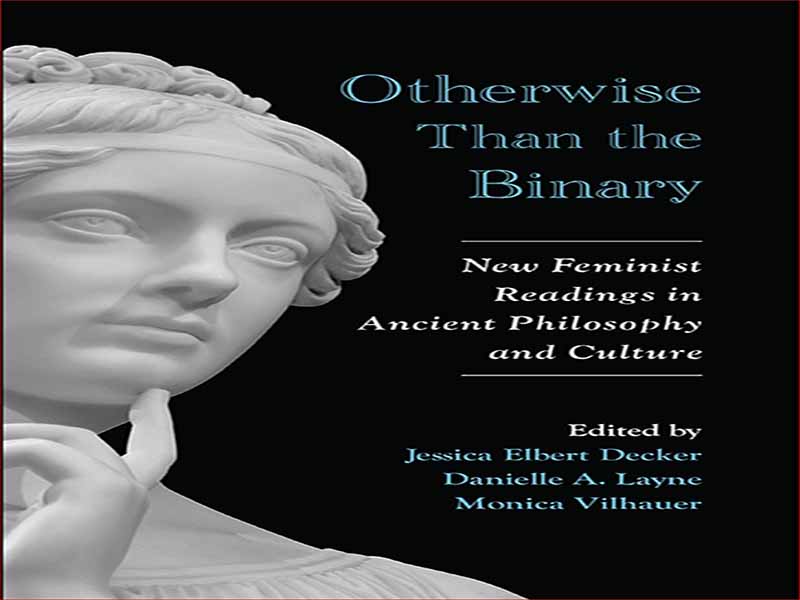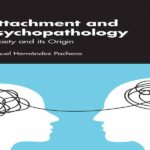- عنوان کتاب: Otherwise Than the Binary – New Feminist Readings in Ancient Philosophy and Culture
- نویسنده: Jessica Elbert Decker
- حوزه: فمینیسم
- سال انتشار: 2022
- تعداد صفحه: 370
- زبان اصلی: انگلیسی
- نوع فایل: pdf
- حجم فایل: 2.14 مگابایت
یک انتقاد رایج در حال حاضر از سنت فلسفی غرب این است که این سنت دارای یک تبعیض جنسیتی ذاتی است که در آن «عقل جهانی» به دور از خنثی بودن است، بلکه به طور مثبت مردانه است و خود را در برابر حوزه زنانه غیرعقلانی، جنون، جادو و رمز و راز قرار می دهد. نظریه پردازانی مانند Genevieve Lloyd یا فمینیست هایی مانند Luce Irigaray استدلال کرده اند که شیوه های فکری یونانی، به ویژه فیثاغورثی، افلاطونی و ارسطویی، تا آنجا که به نظر می رسد به هویت بر تفاوت، لوگوس بر پاتوس، قابل درک بر جسم، شکل بر ماده، و به همین ترتیب، همه دارای یک سلسله مراتب جنسیتی هستند که ستم جنسی و نژادپرستانه را نه تنها در دوران باستان بلکه در عصر حاضر نیز تقویت می کند. همانطور که عنوان ما نشان می دهد، این جلد امیدوار است به غیر از این دوتایی فکر کند و بررسی کند که آیا جهان بینی یونانی به خوبی در این شکل انحصاری تفکر قرار می گیرد یا خیر. به طور کلی، ما میپرسیم که آیا روشهایی برای متفاوت اندیشیدن به دوران باستان وجود دارد، یعنی احتمالاً فلسفههای تفاوت را توضیح میدهند و حتی آن را جشن میگیرند، و خواهیم دید که آیا ممکن است لحظات نادری را کشف کنیم که نویسندگان دوران باستان ضرورت همه آنچه را که بوده است ارزشمند میدانند و از آن حمایت میکنند. کدگذاری شده به عنوان زنانه، خارجی و/یا غیرمنطقی. هدف این جلد پرداختن به هر چهره یا دوره ای از دوران باستان نیست. بلکه به صورت موضوعی از طریق متون انتخابی که تفسیری غیر از دودویی را دعوت می کنند، پیش می رود. همانطور که متفکران معاصر در حال روی آوردن به روش های جدید خواندن دوران باستان هستند، امیدواریم این مطالعات برگزیده الهام بخش خوانش های دیگر متون کهن از طریق این دریچه انتقادی باشد. هنگام بررسی فیلسوفان و شخصیت های برجسته دوران باستان در کنار برنامه های آشکار مردسالارانه و مردانه آنها، سعی خواهیم کرد روش شناسی های فعلی خود را بازنگری کنیم و در عین حال نحوه دریافت و خواندن این متون را نیز مورد پرسش قرار دهیم. آیا می توان از نویسندگان، متون و شیوه های اجتماعی خاص دوران باستان برای ایده ها، نظریه ها و/یا تصاویری که مکمل دغدغه های فمینیستی و متقاطع هستند بازجویی کرد؟ در حالی که اثری عذرخواهی نیست که اعمال و باورهای انحصاری نویسندگان کلاسیک را برای حفظ ارزش «سنت همیشگی» نادیده بگیرد یا نادیده بگیرد، مطالب زیر امیدوار است با تحلیل آثار متفکران مشکل آفرین به این پرسش پاسخ مثبت دهد. متون از نو، ببینیم آیا میتوانیم فلسفه و شیوههای آنها را به شیوههایی درگیر کنیم که ممکن است تنشها و تضادهای عمیق خود را آشکار کند. به عبارت دیگر، تا آنجا که فمینیستها میخواهند استدلال کنند که منطق مردسالارانه ذاتاً مشکلساز است، ما نشان خواهیم داد که چگونه لحظات، رشتههایی از تفکر وجود دارد که در آن نویسندگان مردانهگرا نمیتوانند کاملاً در زنستیزی خود سازگار باشند – علیرغم برنامههایشان، از حمایت نمیکنند. تلاشهای خود برای مشروعیتزدایی از زنانه/دیگری – نشان میدهد که چگونه نظامها و ایدههای دوران باستان ممکن است حاوی مبارزات درونی و زمزمههای احتمالی انقلاب باشد که تفکر مردسالارانه را از بین میبرد و واژگون میکند. البته، این مجموعه مقالاتی که در آن نویسندگان منتخب از دوران باستان را با دیدگاهی فمینیستی بازتفسیر می کنیم، بدون آثار مهم محققان پیش از ما امکان پذیر نخواهد بود. یکی از تأثیرگذارترین آثاری که نگاه انتقادی فمینیستی را به فرهنگ و اندیشه یونان باستان معطوف کرد، کتاب «کودکان آتنا: ایدههای آتنی درباره شهروندی و تقسیم بین دو جنس» اثر نیکول لورو است (1984). در این متن، لورو ایده آتنی خودکامگی (بومی بودن) را در تخیل یونان باستان بررسی می کند و پیکر پاندورا را به عنوان «نخستین زن» که توسط هفائستوس به فرمان زئوس خلق شده است، تحلیل می کند. لورو به این اسطورهها بهعنوان خیالپردازی برخورد میکند، و استدلال میکند که اسطوره – که اغلب در بسیاری از سنتهای کلاسیک دانش پژوهی پیش از او نادیده گرفته میشود – نقش سیاسی مهمی در بافت پلیس بازی میکند.1 لورو در ژانری از تحقیقات متاثر از ایدهها کار میکند. لوی اشتراوس، و اغلب به متون ژان پیر ورنانت و مارسل دتین، متفکرانی که در سنت انسانشناسی ساختارگرایانه کار میکردند، اشاره میکند که سعی در درک روایتهای اسطورهای یونان باستان در زمینههای فرهنگی، مدنی و مذهبی خود داشتند. بچههای آتنا اثری غنی و پیچیده است و نمیتوان آن را به طور کامل در اینجا خلاصه کرد، بنابراین ما بر جنبههای مهم برخورد لورو با اتوکتونی و اسطوره پاندورا به عنوان تحلیلهای نمادینی که روش و جهتگیری انتقادی فمینیستی او را نسبت به متون، بهویژه نشان میدهد، میپردازیم. همانطور که او آنها را به روشی می خواند که از جهت گیری مجدد “غیر از دوتایی” ما به دوران باستان کلاسیک پشتیبانی می کند.
A now common critique of the Western philosophical tradition is that it harbors an inherent sexism wherein “universal reason” is far from neutral but is, rather, positively masculine, setting itself against the feminine domain of irrationality, madness, magic, and mystery. Theorists like Genevieve Lloyd or feminists like Luce Irigaray have argued that Greek modes of thought, particularly Pythagorean, Platonic, and Aristotelian, insofar as they appear to privilege identity over difference, logos over pathos, the intelligible over the bodily, form over matter, and so on, all harbor a gendered hierarchy that reinforces sexist and racist oppression not only in antiquity but also in the present age. As our title suggests, this volume hopes, to think otherwise than this binary and to examine whether the Greek worldview neatly falls within this exclusionary form of thinking. Overall, we will ask if there are ways of thinking antiquity differently, namely, as possibly expounding and even celebrating philosophies of difference, and we will see if we may discover rare moments when authors of antiquity valorize and uphold the necessity of all that has been coded as feminine, foreign, and/or irrational. This volume does not aim to address every figure or period of antiquity; rather, it proceeds thematically through selected texts that invite interpretation that is otherwise than the binary. As contemporary thinkers are turning toward new ways of reading antiquity, we hope that these selected studies will inspire other readings of ancient texts through this critical lens. When examining the philosophers and notable figures of antiquity alongside their overt patriarchal and masculinist agendas, we will attempt to rethink our current methodologies while also questioning how we receive and read these texts. Is it possible to interrogate particular authors, texts, and social practices of antiquity for ideas, theories, and/or images that are complementary to feminist and intersectional concerns? While not a work of apologetics that dismisses or neglects exclusionary practices and beliefs of classical authors so as to safeguard the value of the “perennial tradition,” the following does hope to respond to the question in the affirmative, analyzing the works of problematic thinkers and texts anew, seeing if we can engage their philosophy and practices in ways that might expose their own deep-seated tensions and contradictions. In other words, insofar as feminists wish to argue that patriarchal logic is inherently problematic, we will expose how there are moments, strains of thinking, in which masculinist authors fail to be fully consistent in their misogyny—fail, despite their agendas, to support their own attempts to delegitimize the feminine/Other—showing how the systems and ideas of antiquity may contain internal struggles and possible whispers of revolution that dismantle and subvert patriarchal thinking. Of course, this anthology of essays in which we reinterpret select authors from antiquity through a feminist perspective would not be possible without the important works of the scholars before us. One of the most influential works to turn a feminist critical lens on Ancient Greek culture and thought is Nicole Loraux’s groundbreaking Children of Athena: Athenian Ideas about Citizenship and the Division between the Sexes (1984). In this text, Loraux examines the Athenian idea of autochthony (nativeness) in the Ancient Greek imagination and analyzes the figure of Pandora as the “first woman” created by Hephaestus at Zeus’s command. Loraux approaches these myths as fantasies, arguing that myth—often disregarded in much of the classical tradition of scholarship that preceded her—plays a significant political role in the context of the polis.1 Loraux is working in a genre of scholarship influenced by the ideas of Lévi- Strauss, and often refers to the texts of Jean-Pierre Vernant and Marcel Detienne, thinkers working in the tradition of structuralist anthropology that attempted to understand Ancient Greek mythical narratives within their cultural, civic, and religious contexts. Children of Athena is a rich and complex work, and cannot be exhaustively summarized here, so we will focus on crucial aspects of Loraux’s treatment of autochthony and the myth of Pandora as emblematic analyses that demonstrate her method and critical feminist orientation toward the texts, especially as she reads them in ways that would support our “otherwise than the binary” reorientation toward classical antiquity.
این کتاب را میتوانید بصورت رایگان از لینک زیر دانلود نمایید.
Download: Otherwise Than the Binary – New Feminist Readings in Ancient Philosophy and Culture




































نظرات کاربران